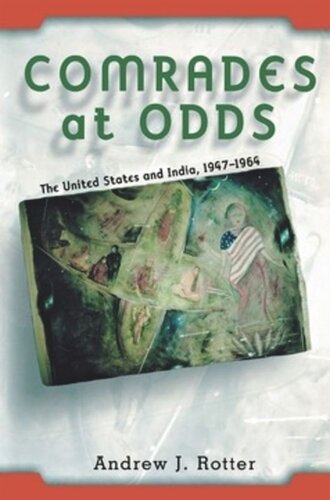

Most ebook files are in PDF format, so you can easily read them using various software such as Foxit Reader or directly on the Google Chrome browser.
Some ebook files are released by publishers in other formats such as .awz, .mobi, .epub, .fb2, etc. You may need to install specific software to read these formats on mobile/PC, such as Calibre.
Please read the tutorial at this link: https://ebookbell.com/faq
We offer FREE conversion to the popular formats you request; however, this may take some time. Therefore, right after payment, please email us, and we will try to provide the service as quickly as possible.
For some exceptional file formats or broken links (if any), please refrain from opening any disputes. Instead, email us first, and we will try to assist within a maximum of 6 hours.
EbookBell Team

0.0
0 reviewsComrades at Odds explores the complicated Cold War relationship between the United States and the newly independent India of Jawaharlal Nehru from a unique perspective—that of culture, broadly defined. In a departure from the usual way of doing diplomatic history, Andrew J. Rotter chose culture as his jumping-off point because, he says, "Like the rest of us, policymakers and diplomats do not shed their values, biases, and assumptions at their office doors. They are creatures of culture, and their attitudes cannot help but shape the policy they make." To define those attitudes, Rotter consults not only government documents and the memoirs of those involved in the events of the day, but also literature, art, and mass media. "An advertisement, a photograph, a cartoon, a film, and a short story," he finds, "tell us in their own ways about relations between nations as surely as a State Department memorandum does."While expanding knowledge about the creation and implementation of democracy, Rotter carries his analysis across the categories of race, class, gender, religion, and culturally infused practices of governance, strategy, and economics.Americans saw Indians as superstitious, unclean, treacherous, lazy, and prevaricating. Indians regarded Americans as arrogant, materialistic, uncouth, profane, and violent. Yet, in spite of these stereotypes, Rotter notes the mutual recognition of profound similarities between the two groups; they were indeed "comrades at odds."